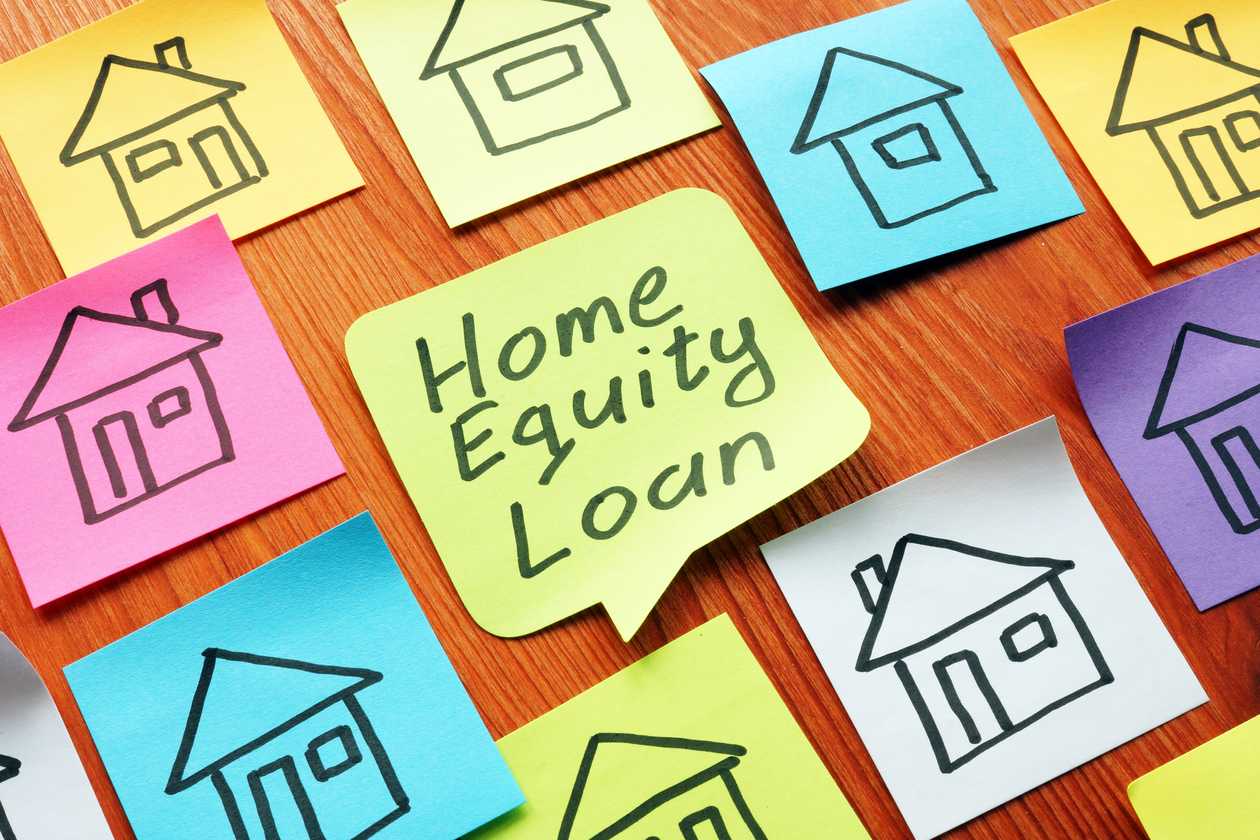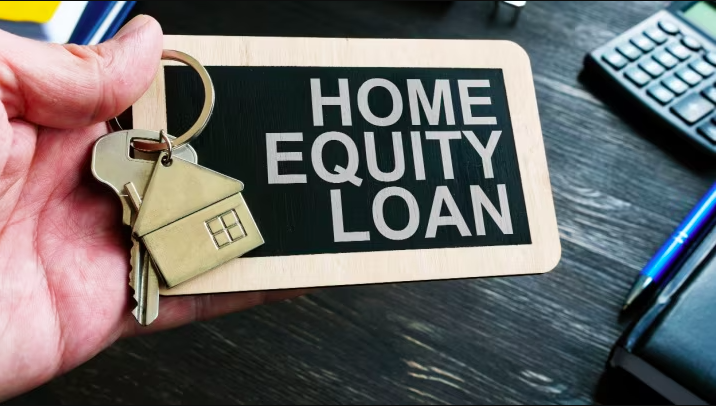Home Equity Loan also known as Home Equity Installment is a type of Second Mortgage secured by the equity in the home. Home Equity Loans are a useful way to tap into the equity of homeowners’ homes to obtain funds when their assets are tied up in their property. A Home Equity Loan lets the homebuyers convert a portion of their homeownership into cash. It can be a great way to borrow large lump sums of money, however, if homebuyers default, they may face foreclosure on their home.
A Home Equity Loan is one way to tap into the borrower’s home’s value without having to sell it. As the homebuyers make Mortgage Payments on the property and its value appreciates with time, the share of the home that they own their equity grows. By taking out the Home Equity Loan, the homeowners convert that equity back into debt in exchange for cash. Home Equity Loans are the most popular choice for homeowners who want to take on some kind of home improvement project.
A Home Equity Loan can be a potentially valuable tool for homebuyers looking to tap into the value they have built in their property. A Home Equity Loan allows homeowners to borrow against the equity in their home, sometimes at lower interest rates than a borrower might otherwise qualify for. The Interest paid on the Home Equity Loans is tax-deductible, but only if the loan is used to buy, build, or substantially improve the home that secured the loan. Home Equity Loan allows homeowners allow homeowners to borrow against the equity in their residence.
What is a Home Equity Loan?
A Home Equity Loan allows homeowners to tap into some of their home’s equity for cash, which they receive in the form of lump-sum payment that they pay back at fixed interest rates over the agreed period. This is typically between 5 and 20 years, though some mortgage lenders offer mortgage terms as long as 30 years. A Home Equity Loan enables homeowners to use the equity they have built in their home as collateral to borrow money. Like a Primary Loan used to buy a house, the borrower’s Home is used as security to protect lenders if they end up defaulting on their loan. A Home Equity Loan is often called a Second Mortgage because borrowers have other loan payments to make on top of their Primary Mortgage.
How Does Home Equity Loan Work?
Home Equity Loans are commonly known as Second Mortgages or Second Lines and act as just that they finance the portion of the total value of the home, with the property acting as collateral. If homebuyers are Interested in the Home Equity Loan, the first thing they will have to do is figure out how much they need to borrow. Unlike the Home Equity Lines of Credit (HELOC), which allows homeowners to draw from a line of credit as needed, Home Equity Loans require homebuyers to have a real sense of what their projects are going to cost upfront. Once the borrowers know how much they need they will want to calculate the value of equity relative to the value of the home. The next step is to shop around a Mortgage Lender. It is always recommended that homebuyers need to reach out to more than one so that they can find the best available rates and terms. They will receive the full amount at closing and homebuyers will repay the Home Equity Loan principal and interest each month at a fixed rate over a set number of years.

What Are The Benefits of Home Equity Loans To Consumers?
Home Equity Loans provide an easily accessible source of available cash. The Home Equity Loan interest rates although typically higher than that of the first mortgage, are still much lower than the rates on credit cards and other consumer loans.
What Are the Benefits of Home Equity Loans To Lenders?
Home Equity Loans are also a dream come true for Mortgage Lenders. After earning interest income and fees on the Borrower’s initial mortgage, the Mortgage Lender earns even more interest and fees on the home equity debts. In case the borrower defaults, the Mortgage Lenders not only get to keep all the money earned on both the initial mortgage and the Home Equity Loan, but they also get to repossess the property, sell it again, and restart the cycle with the next borrower.
What Are the Varieties of Home Equity Loan?
Home Equity Loans come in two varieties such as fixed-rate loans and revolving lines of credit.
- Fixed-Rate Loans: Fixed-rate loans provide single, lump-sum payments to the borrowers. It is repaid over a set period, usually 5 to 15 years at an agreed-upon interest rate. The Payment and Rate of Interest remain the same over the lifetime of the loan.
- Home Equity Line of Credit (HELOC): These Mortgage Loans are Variable-rate Loans or Adjustable-Rate Loans that work much like a Credit Card. Sometimes these Mortgage Loans come with a Credit Card that the borrowers can use for the purchase on the line of credit.
What Are The Requirements To Qualify For Home Equity Loan?
Similar to other financing options, Home Equity Loans come with certain Requirements. The Mortgage lenders will typically look for:
- Adequate Home Equity: Mortgage lenders typically prefer homebuyers who have built up a significant amount of equity in their home already.
- Stable Income: As with any other Loan, the Mortgage Lenders want to see consistent income that suggests the borrowers will be able to repay the Loan.
- Good Credit History: A Mortgage Lender will always look for a good Credit History, however, it is not always mandatory. The borrower’s Credit Score needs to be mid-600s or higher.
- Low Debt-to-Income (DTI) Ratio: A lower Debt-to-Income (DTI) Ratio compared to Income indicates that Lenders could effectively handle new debt. However, It should not be more than 43%.
- Loan-to-Value (LTV) Ratio: The Loan-to-Value (LTV) Ratio should not be more than 80%.
- Home Equity: At least 20%.
What Documents Are Required To Apply For a Home Equity Loan?
Here is a quick look at some of the documentation that may need to be provided to the Mortgage Lender:
- Recent pay stubs
- W-2 forms, for the last 2 years
- Tax returns, for the last 2 years
- Documentation of extra income sources
- Recent bank statements
- Down payment source
- Identity documentation, such as driver’s license
- Social Security number
- Recent home appraisal
A Home Equity Loan is a type of Second Mortgage if the homeowners currently have a mortgage on their home. With that, the documents the homebuyers have provided to the mortgage lender might feel similar to the documents they provided during the original mortgage process.
How To Get A Home Equity Loan?
Getting the Home Equity Loan process generally follows these steps:
- Picking A Lender: Shopping around and comparing the varieties of Mortgage Lenders can help homebuyers identify the one best suited for their needs and financial situations.
- Apply the Loan Application: Once choosing the Mortgage Lender, the Next step is to submit the Loan Application. The homeowners will be asked for certain financial Documents such as details about their home and other relevant information.
- Home Appraisal Process: In some cases, the Mortgage Lenders may require a home appraisal to determine the current market value of the Home.
- Loan Approval and Terms: If the Loan is approved, the homebuyers will be presented with Loan terms, the Home Equity Loan rates, and other important details.
Home Equity Loan Reviews
A Home Equity Loan is a good idea or not depends upon the borrower’s financial situation and what they plan to do with the Money. However, there are many upsides and downsides to a Home Equity Loan, so it’s always worth the time to weigh the Pros and Cons of a Home Equity Loan.
Pros:
- Home Equity Loans are easier to qualify than many other types of Loans.
- The Interest Rates of Home Equity Loans are usually fixed and lower than many other Consumer Loans.
- The Loan Terms are longer than many other Consumer Loans.
- There are no restrictions on how the homeowners can use the Funds.
- The homeowners can access the funds immediately in a Lump Sum.
Cons:
- The Homebuyers have a Second Mortgage to pay off on top of their Primary Mortgage.
- The Risk of Foreclosure should the borrower default on the Loan.
- If the homebuyers sell their home, they will have to pay off the entire balance of the loan as well as the remaining balance of their primary mortgage as soon they close.
- The Borrowers have to pay closing costs, unlike some other consumer loans.
Frequently Asked Questions (FAQs)
Question 1: How long do you have to repay a Home Equity Loan?
Answer: Repay Home Equity Loan varies from lender to lender. However, most Home Equity Loans come with a repayment period of between 5 years and 30 years. A longer loan term means that the borrowers will get more affordable monthly Payments.
Question 2: Are there any fees associated with Home Equity Loans?
Answer: The fees for Home Equity Loans vary from lender to lender. However, some Home Equity Loan lenders require homebuyers to pay the origination fees and other closing costs, typically between 2% and 5% of the loan balance. Homebuyers also have to pay home appraisal fees. Once the loan proceeds are disbursed to borrowers, late fees could apply if they remit payment after the monthly due date or grace period.
Question 3: How Long does it take to get a Home Equity Loan?
Answer: It can take anywhere from 2 weeks to 4 weeks to get the Home Equity Loans. This all depends on where the homebuyers get the loan when the borrowers can get the required appraisal completed, how quickly they can get approved, and whether they have completed all the right documentation.
Question 4: What Should I look for when applying for a Home Equity Loan?
Answer: Look for a Home Equity Loan with a low interest rate, affordable origination fees, fair repayment terms, and monthly payments that fit your budget.
The Bottom Lines
A Home Equity Loan may be a better choice financially than the Home Equity Line of Credit (HELOC) for homebuyers who know exactly how much equity they need to pull out and want the security of a fixed interest rate. Homeowners need to take out the Home Equity Loans with caution when consolidating debt or financing home repairs.
